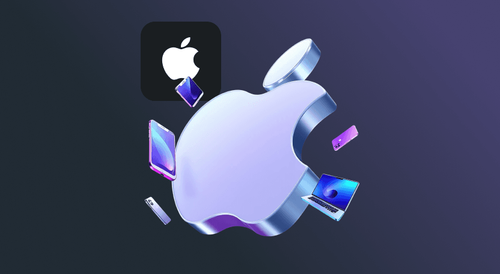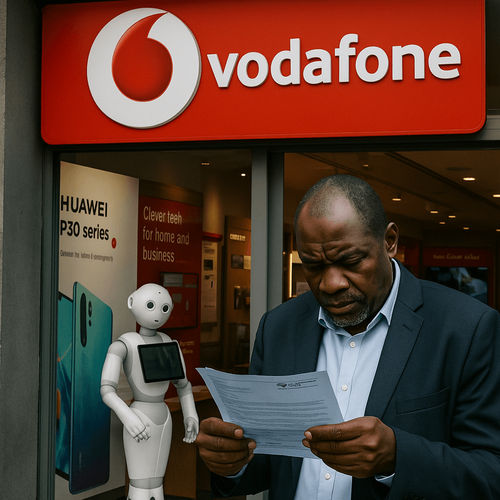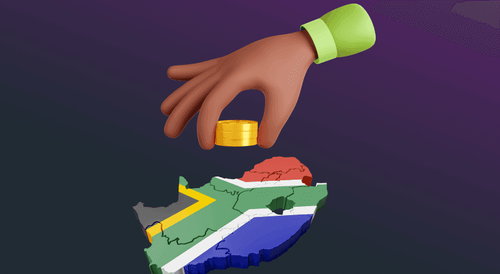The GameFi Revolution: How Blockchain Is Rewriting the Rules of the $200 Billion Gaming Industry

The neon-lit avatars dart across the screen, wielding NFT swords and tokenised armour as they battle for digital treasure. This isn't just gameplay — it's the new frontier of finance. Welcome to GameFi, where the lines between entertainment and economics blur in blockchain-powered virtual worlds.
What began as pixelated experiments like CryptoKitties has mushroomed into a sector boasting 10 million monthly active users and $7.8 billion in lifetime trading volume, according to DappRadar. The industry's explosive growth comes as traditional gaming giants, from Electronic Arts to Square Enix, scramble to respond to this player-owned economic paradigm.
The GameFi Boom: From Play-to-Earn to Metaverse Economies
GameFi’s core innovation is the Play-to-Earn (P2E) model, which rewards players with tradable tokens or NFTs for in-game achievements. Unlike traditional games, where assets are locked within walled gardens, GameFi grants true ownership via the blockchain, enabling players to monetise their time and skills.
The sector gained mainstream attention in 2021 with the rise of Axie Infinity, a Pokémon-inspired battle where players bred and traded NFT creatures (Axies), earning over $1 billion in revenue at its peak. Similarly, virtual worlds like The Sandbox and Decentraland turned digital real estate into a speculative market, with parcels selling for millions.
Yet, GameFi is evolving beyond P2E. New models like Move-to-Earn (StepN), Learn-to-Earn (educational platforms), and MetaFi (metaverse economies) are expanding the sector’s scope.
Key Trends Reshaping GameFi in 2025
1. Institutional Adoption: Major studios like Ubisoft and tech giants (AMD, Epic Games) are exploring blockchain integration through alliances like the Blockchain Game Alliance.
2. Cross-Chain Interoperability: Projects like ImmutableX (Ethereum L2) and THORChain (multi-chain swaps) are solving scalability and liquidity fragmentation.
3. Hybrid Gaming Models: Free-to-Play (F2P) games now incorporate optional NFT monetisation, lowering entry barriers.
4. Regulatory Scrutiny: As GameFi matures, governments are grappling with how to classify in-game assets. Are they tokens, securities, or commodities?
BROKSTOCK's GameFi Power Players
The BROKSTOCK trading platform offers exposure to leading GameFi projects, each addressing unique niches:
1. ImmutableX (IMX) - The AWS of Web3 Gaming
- Role: Ethereum’s leading Layer-2 scaling solution for NFT games.
- Why It Matters: Powers hundreds of games (e.g., Illuvium, Guild of Guardians) and hosts NFT marketplaces like Sphere.
- Market Cap: $730M (as of 11 April 2025).
- Analyst Take: "The clear infrastructure play — like buying Intel during the PC boom"
2. The Sandbox (SAND) - Digital Land Rush
- Role: Metaverse platform where players create, own, and monetise voxel-based worlds.
- Why It Matters: Partners include Adidas, Snoop Dogg, and HSBC.
- Market Cap: $630M.
3. Gala (GALA) - The Anti-EA
- Role: Decentralised gaming ecosystem with AAA titles (Mirandus, Eternal Paradox).
- Why It Matters: Gala’s node network lets users earn by supporting games.
What's Next:
The road ahead will likely see GameFi evolve in three key directions. First, a move toward hybrid models that blend free-to-play accessibility with optional blockchain monetisation. Second, technological improvements to solve UX hurdles, particularly around wallet management and transaction fees. Finally, deeper integration with traditional gaming platforms, as evidenced by Sony's recent blockchain-related PlayStation patents.
The sector’s potential is undeniable. Analysts predict GameFi could onboard 500M+ users by 2030, driven by:
- AI Integration: Dynamic NPCs and procedural NFT generation.
- Metaverse Synergies: Virtual concerts, branded experiences (e.g., Nike’s Swoosh platform).
- Mobile-First Models: Projects like Four (FORM) target emerging markets with low-cost gameplay.
The implications extend far beyond gaming. GameFi represents perhaps the most accessible on-ramp to decentralised finance for mainstream users. Millions who would never trade cryptocurrencies will happily engage with blockchain technology to enhance their gaming experience. In doing so, they're unwittingly participating in what may become the largest experiment in alternative economic systems ever conducted.
GameFi's ultimate test won't be technological but psychological: Can it transition from speculative casino to sustainable entertainment? For early adopters, the answer's already clear: "This isn't just a game anymore. It's how I pay rent."
As traditional gaming's 3.2 billion players increasingly demand ownership, the industry's power structure may soon resemble its games — decentralised.
Read also
BROKSTOCK SA (PTY) LTD is an authorised Financial Service Provider and is regulated by the South African Financial Sector Conduct Authority (FSP No.51404). BROKSTOCK SA (PTY) LTD Proprietary Limited trading as BROKSTOCK. BROKSTOCK SA (PTY) LTD t/a BROKSTOCK acts solely as an intermediary in terms of the FAIS Act, rendering only an intermediary service (i.e., no market making is conducted by BROKSTOCK SA (PTY) LTD t/a BROKSTOCK) in relation to derivative products (CFDs) offered by the liquidity providers. Therefore, BROKSTOCK SA (PTY) LTD t/a BROKSTOCK does not act as the principal or the counterparty to any of its transactions.
The materials on this website (the “Site”) are intended for informational purposes only. Use of and access to the Site and the information, materials, services, and other content available on or through the Site (“Content”) are subject to the laws of South Africa.
Risk notice Margin trading in financial instruments carries a high level of risk, and may not be suitable for all users. It is essential to understand that investing in financial instruments requires extensive knowledge and significant experience in the investment field, as well as an understanding of the nature and complexity of financial instruments, and the ability to determine the volume of investment and assess the associated risks. BROKSTOCK SA (PTY) LTD pays attention to the fact that quotes, charts and conversion rates, prices, analytic indicators and other data presented on this website may not correspond to quotes on trading platforms and are not necessarily real-time nor accurate. The delay of the data in relation to real-time is equal to 15 minutes but is not limited. This indicates that prices may differ from actual prices in the relevant market, and are not suitable for trading purposes. Before deciding to trade the products offered by BROKSTOCK SA (PTY) LTD, a user should carefully consider his objectives, financial position, needs and level of experience. The Content is for informational purposes only and it should not construe any such information or other material as legal, tax, investment, financial, or other advice. BROKSTOCK SA (PTY) LTD will not accept any liability for loss or damage as a result of reliance on the information contained within this Site including data, quotes, conversion rates, etc.
Third party content BROKSTOCK SA (PTY) LTD may provide materials produced by third parties or links to other websites. Such materials and websites are provided by third parties and are not under BROKSTOCK SA (PTY) LTD's direct control. In exchange for using the Site, the user agrees not to hold BROKSTOCK SA (PTY) LTD, its affiliates or any third party service provider liable for any possible claim for damages arising from any decision user makes based on information or other Content made available to the user through the Site.
Limitation of liability The user’s exclusive remedy for dissatisfaction with the Site and Content is to discontinue using the Site and Content. BROKSTOCK SA (PTY) LTD is not liable for any direct, indirect, incidental, consequential, special or punitive damages. Working with BROKSTOCK SA (PTY) LTD you are trading share CFDs. When trading CFDs on shares you do not own the underlying asset. Share CFDs are complex instruments and come with a high risk of losing money rapidly due to leverage. A high percentage of retail traders accounts lose money when trading CFDs with their provider. All rights reserved. Any use of Site materials without permission is prohibited.





